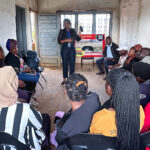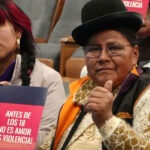The radically expanded Global Gag Rule is a harmful policy that puts the United States even further out of step with our global counterparts.

Ipas Mozambique has launched both a community resource center to foster local leadership on reproductive rights and a chatbot designed to reach rural youth with essential sexual and reproductive health information.
Born and based in La Paz, Bolivia, Manuel Seoane uses photography to show stories that are often overlooked or only partially told. As a photojournalist, he seeks to widen how the world is seen beyond the narrow perspectives that most often define it.
Manuel’s work focuses on environmental and human rights issues, where he understands storytelling as a responsibility rather than a solution. In this conversation, he reflects on why difficult stories must be told even if they cannot change outcomes, how he searches for hope in somber situations, and what documenting girls affected by child marriage and teen pregnancy in Bolivia taught him about the importance of bringing sensitive issues to light.


